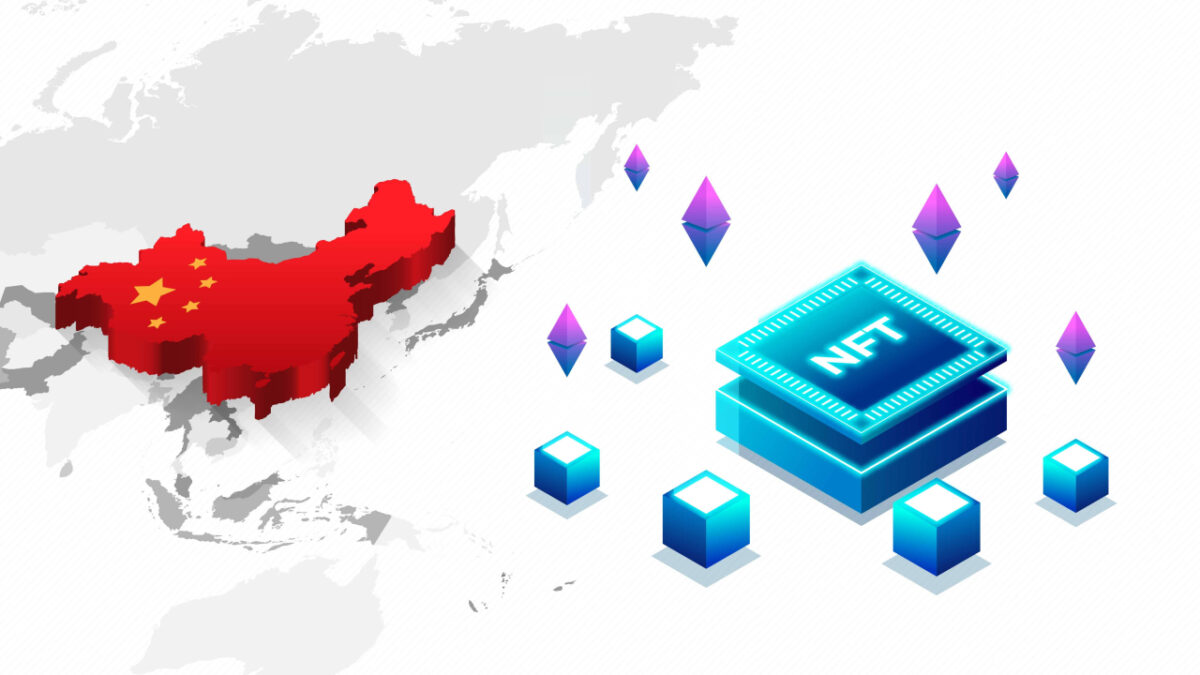China has been a vocal opponent of cryptocurrency for years, stepping up its efforts last year when it cracked down on Bitcoin mining. But what about non-ferrous metals (NFTs)? According to a new report from China, the country will launch its own state-backed platform for launching tokenized digital collectibles—with no crypto allowed.
According to the South China Morning Post, the government-backed Blockchain Services Network (BSN) is preparing permissioned, non-public blockchain infrastructure that will allow the government to monitor the issuance of NFT-style valuables.
The platform will not be interoperable with NFTs developed on public blockchain networks like Ethereum and Solana, and would not accept cryptocurrency payments, according to the report. Instead, collectibles and platform fees would only be accepted in Chinese yuan on the private network.
According to the source, BSN will refer to its unique brand of state-backed NFTs as Distributed Digital Certificates (DDC), with the platform set to launch at the end of this month.
According to the magazine, He Yifan, CEO of Red Date Technological, one of the technology firms behind the BSN, such collectibles “have no legal concern in China” as long as they are not affiliated with cryptocurrency. Government rules make public blockchains “illegal” in China, he added.
According to the source, the BSN has already constructed permissioned copies of current blockchain networks for business usage, and will integrate 10 of them into its NFT platform, including Ethereum and Corda versions.
For the planned launch, the company has reportedly engaged the help of 20 partners, including blockchain network Cosmos, cloud invoicing service Baiwang, and broadcasting solutions supplier Sumavision.
An NFT is a digital asset’s deed of ownership, such as an image, video clip, video game item, and so on. According to DappRadar data, the NFT market achieved $23 billion in trade volume in 2021, up substantially from $100 million in 2020.
Why does it matter?
Given the Chinese government’s attitude to bitcoin, it’s no surprise that Chinese businesses have steered clear of NFTs so far. The South China Morning Post reported this week that, in response to rising demand for NFTs in China, companies have renamed them “digital collectibles” and are largely avoiding the NFT branding.
Furthermore, due to government concerns about speculation and money laundering, companies selling tokenized digital collectibles cannot allow them to be resold. Nonetheless, Alibaba, Tencent, Bilibili, and JD.com have all released their own digital collectibles.
Given the government’s attitude on bitcoin, their claimed plan to keep the NFT market under its watchful eye using permissioned blockchain technology rings genuine. Citizens still have access to digital assets that they can own and utilize using this technique, but it appears to sidestep the speculative frenzy that has formed around actual NFTs.
However, one of the major advantages of NFTs is that they are not governed by a single entity. They can be freely bought and sold without requiring permission, and they may be interoperable, allowing them to be used across platforms and online worlds—a significant selling point as the approaching metaverse takes shape.
Users in China may not have the same rights and powers if the BSN’s concept for DDC collectibles takes hold. China’s strict oversight, like that of other tech and entertainment industries in the country, particularly the video game and film industries, may limit what citizens have access to and shut out much of the rest of the world from its large potential user base.
It may also hinder the NFT industry’s ability to actually go global and reach China’s 1.4 billion people. It also has the potential to stifle the development of an open, interoperable, NFT-driven metaverse that can fully connect the world’s people.
Despite warnings from state-owned media, Chinese companies are pouring money into the metaverse. The government’s stance on NFTs, on the other hand, may influence its future views on the metaverse, resulting in yet another walled garden.
